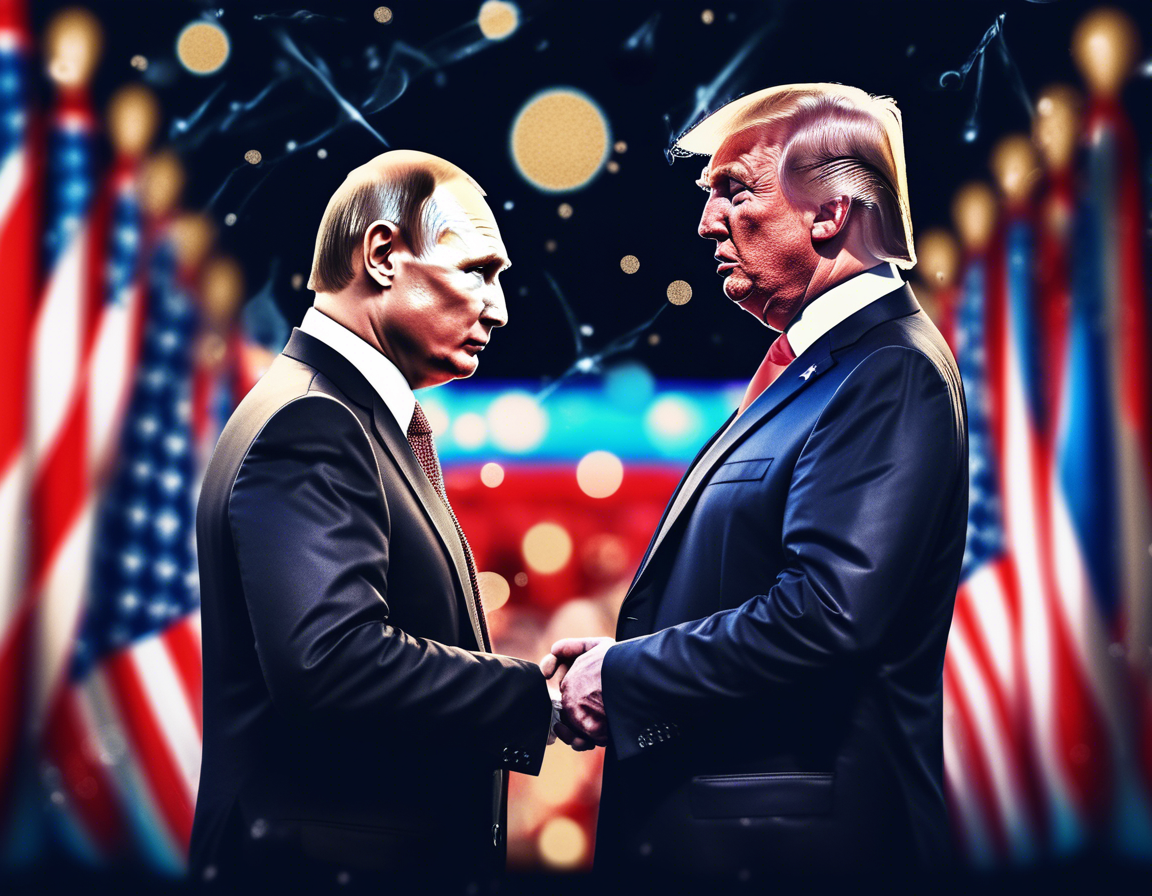
Trump Aligns With Putin on Ukraine Peace Deal, Sparking Concern
Donald Trump and Vladimir Putin met in Alaska, but no ceasefire agreement was reached. Trump appears to have shifted towards Russia's position, favoring a peace agreement over a ceasefire. European leaders expressed support for talks but emphasized Ukraine's security needs.

The international community continues to grapple with the ongoing conflict in Ukraine, as diplomatic efforts seek to bring about a resolution. Following a high-profile meeting between US President Donald Trump and Russian President Vladimir Putin in Alaska, world leaders are closely monitoring developments and calling for a peaceful resolution to the crisis.
President Trump's meeting with President Putin was highly anticipated, as it provided an opportunity for direct engagement on the issue of Ukraine. While no immediate ceasefire agreement was reached, both leaders expressed a commitment to working towards a lasting peace. President Trump emphasized the importance of a Peace Agreement that would bring an end to the hostilities, rather than a temporary ceasefire that could quickly unravel.
Global Reactions and Calls for Dialogue
European leaders have welcomed President Trump's efforts to de-escalate the situation and called for further dialogue between the involved parties. In a joint statement, they expressed their support for trilateral talks involving President Trump, President Putin, and Ukrainian President Volodymyr Zelenskyy. They stressed the need for Ukraine to have "ironclad security guarantees" to defend itself and called for an end to any limitations on Ukraine's armed forces.
The international community is united in its condemnation of Russia's aggression against Ukraine and its violation of international law. Calls for a Peace Agreement are growing louder, with many urging Russia to withdraw its troops from Ukrainian territory and respect the sovereignty and territorial integrity of Ukraine.
The Complexities of a Diplomatic Solution
Finding a lasting solution to the conflict in Ukraine is a complex and multifaceted challenge. Differing perspectives, entrenched positions, and a history of mistrust between the parties involved create significant hurdles to a peaceful resolution. International efforts are focused on facilitating dialogue, building confidence, and promoting a political settlement that addresses the concerns of all stakeholders.
The international community must continue to exert pressure on Russia to end its aggression and adhere to international norms. At the same time, it is crucial to provide support to Ukraine, both militarily and economically, to help it defend its sovereignty and territorial integrity. A comprehensive approach that combines diplomacy, deterrence, and assistance is essential to achieving a peaceful resolution to the conflict.
Amidst the political maneuvering and diplomatic efforts, it is important to remember the human cost of war. The conflict in Ukraine has resulted in thousands of casualties, displacement of millions of people, and widespread destruction. Civilians bear the brunt of the violence, suffering from loss of life, homes, and livelihoods. The international community must prioritize humanitarian assistance to alleviate the suffering of those affected by the conflict.
Ultimately, the goal is to achieve a just and lasting peace in Ukraine. This requires sustained diplomatic engagement, a commitment to finding common ground, and a willingness to compromise on all sides. The international community must work together to create conditions for peace and reconciliation, ensuring that the voices of the Ukrainian people are heard and their rights protected.
Share news















